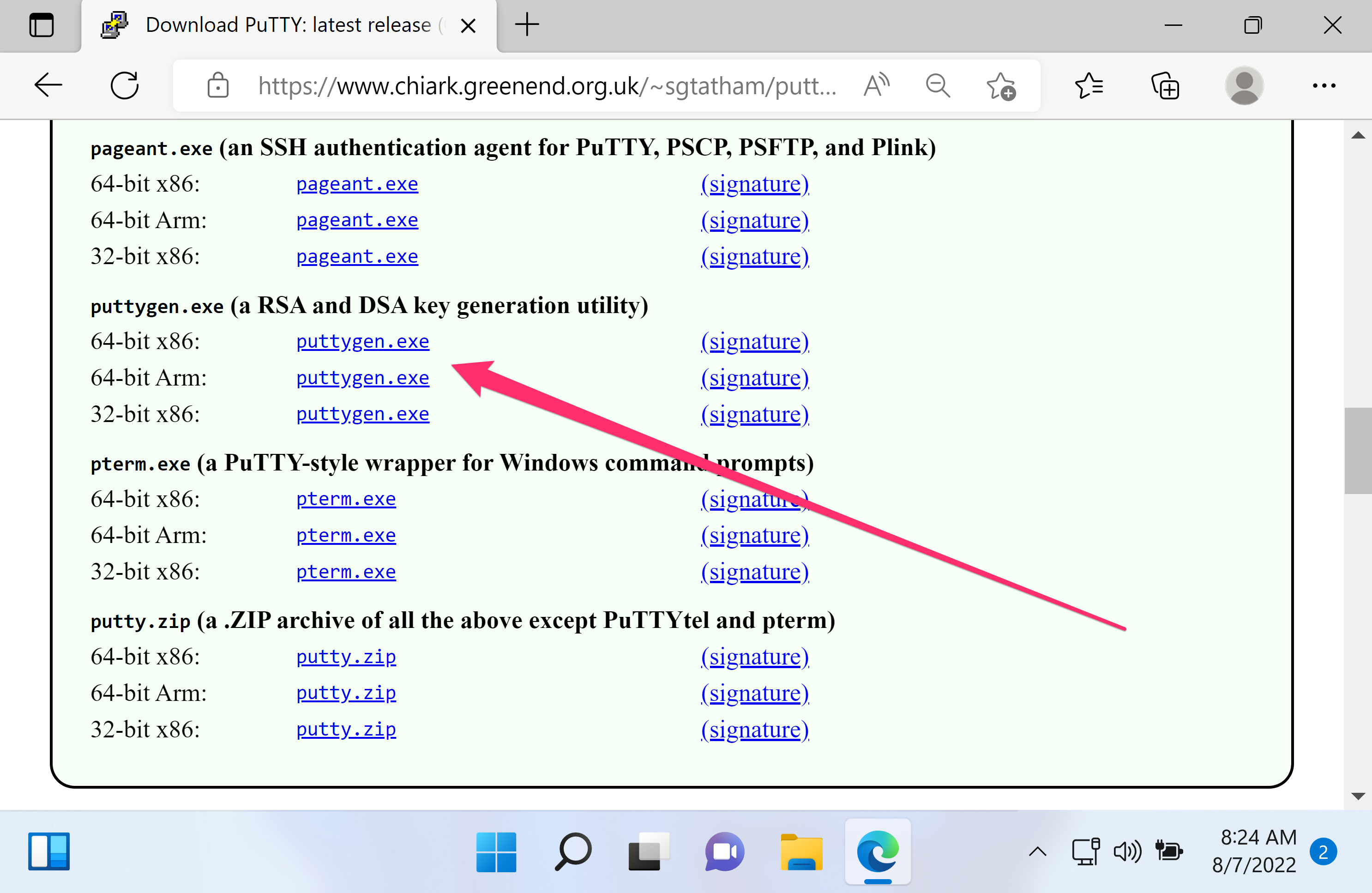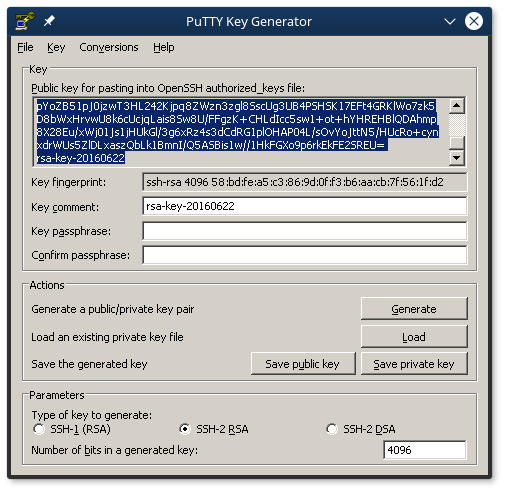
- Putty ssh with key how to#
- Putty ssh with key install#
- Putty ssh with key generator#
- Putty ssh with key password#
- Putty ssh with key windows#
Make sure you’ve replaced the “keyname” with your private key filename.Īlso, check out Remmina (supports RDP, SSH, VNC and more)įirst published: | Last updated: Jan 4th, 2023. Then cd to the path of key(s): puttygen keyname -o keyname.ppk
Putty ssh with key install#
On Arch Linux its simple… pacman -S puttyĭebian/Ubuntu try… apt install putty-tools
Putty ssh with key windows#
Once PuTTY is installed, press the Windows key or open the Windows and type puttygen. Save the private key to the desktop as 'idrsa.ppk'. Choose an optional passphrase to protect the private key. Under 'Actions' / 'Save the generated key', select 'Save private key'.

Navigate to the OpenSSH private key and click 'Open'.
Putty ssh with key generator#
It is analogous to the ssh-keygen tool used in some other SSH implementations. Generating SSH keys with PuTTY PuTTY is Free and Open Source software. Click 'Conversions' from the PuTTY Key Generator menu and select 'Import key'. Then, it optionally makes modifications to the key (changing the comment and/or the passphrase) finally, it outputs the key, or some information about the key, to a file. PuTTYgen is an key generator tool for creating SSH keys for PuTTY.

Firstly, it either loads an existing key file (if you specified keyfile), or generates a new key (if you specified keytype). The 'agent' holds your keys in memory, decrypted (so you only need to unlock them once), and the client asks it to sign data for authentication. If you're sure you're using PuTTY, then you can run putty -version to see the version number of the version you're running.When you run puttygen, it does three things. 1 Answer Sorted by: 28 Yes, the option is equivalent, however, it doesn't forward keys in general it forwards connections to the 'SSH agent' specifically. That indicates I'm using the ssh binary, and I'd then query that program for its version to make sure it's correct. For example, on my Linux box, you can see this output: 14:20:33.666178 git.c:458 trace: built-in: git ls-remote run-command.c:654 trace: run_command: unset GIT_PREFIX GIT_PROTOCOL=version=2 ssh -o SendEnv=GIT_PROTOCOL 'git-upload-pack '\''git/git.git'\''' If you were running from the command line, you could set GIT_TRACE=1 in the environment to see what SSH program is being invoked. If that's PuTTY, you need to be sure that the version you're using is also 0.75 or newer.
Putty ssh with key password#
by specifying Userhostname and -pw option to provide the password in Wshell.Run function where Wshell is CreateObject ('WScript.Shell'). I know there are simple commands to login to remote machine through VBA i.e. In this case, Pageant 0.76 should be sufficient for the agent, so the question is the SSH client that you're using in Git Extensions. Specifying private key on PuTTY command-line. I know that in Windows, you have to use PuTTY to ease this kind of connections, and it works fine when using it to connect remote servers that has the public key version of my key.ppk file. The ability to use SHA-2 (that is, SHA-256 or SHA-512) requires three things: support from the server (which GitHub provides), support from the client, and support from the agent (if one is being used). I have a problem when trying to use SSH through the terminal. All RSA SSH keys have the ability to use SHA-1, SHA-256, or SHA-512. How can I verify that the key I generated with puttygen is indeed using SHA-2?įor RSA keys, the signature algorithm used doesn't depend on the type of key. This is how 'id_rsa.pub' is structured: - BEGIN SSH2 PUBLIC KEY. This is how 'id_rsa.ppk' is structured: PuTTY-User-Key-File-3: ssh-rsa It's weird that Github rejects the original rsa-key though - what am I missing? It is not possible to convert a private key to public key, except of some brute force hacking.
Putty ssh with key how to#
In this guide, you will learn how to use PuTTY SSH terminal to connect to your hosting account or to a virtual private server. For ssh you have a key-pair idrsa is the private key in PEM is your public key. SSH, or Secure Shell, is a secure protocol for connecting to a remote server.To establish an SSH connection, you will need an SSH client app like PuTTY.

There are often more then one public keys or a key-pair concatenated together. Please use a newer client or a different key type.įor the time being I converted the rsa-key over to openssh and loaded that into WSL ssh-agent and I can now 'git push' from the command line. The PEM format can contain more than one key. Please make sure you have the correct access rights and the repository exists.ĮRROR: You're using an RSA key with SHA-1, which is no longer allowed.

However when Gitext tries to push changes over to remote I get the following error: "C:\Program Files\Git\bin\git.exe" push -recurse-submodules=check -progress "origin" refs/heads/.:refs/heads/.įatal: Could not read from remote repository. I have created a brand new rsa-key with SHA-2 using puttygen.exe and I have added it into my Github account. I'm using Gitext in windows which in turn uses Putty-Agent (pagent.exe latest version currently 0.76).


 0 kommentar(er)
0 kommentar(er)
